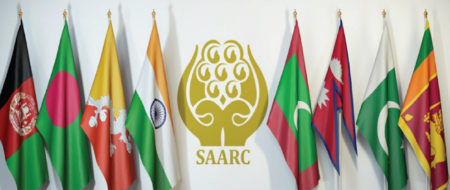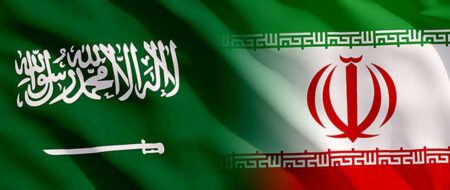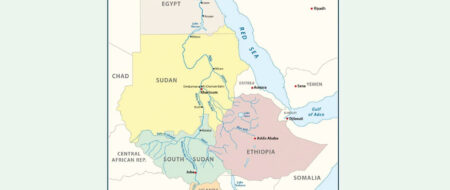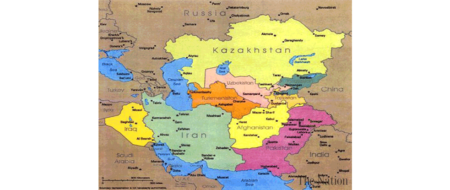Foundation of a family: Importance, obstacles and possible solutions
A family is the basic structural unit of any society. Society is defined as the social system made up of inter-related and inter-dependent institutions, such as family, education, work, religion and law. Gordon Marshall, a sociologist defined a family
Policy Perspectives , Vlm 1, No.1
A family is the basic structural unit of any society. Society is defined as the social system made up of inter-related and inter-dependent institutions, such as family, education, work, religion and law. Gordon Marshall, a sociologist defined a family as:
“An intimate domestic group made up of people related to one another by bonds of blood, sexual mating or legal ties. It has been a very resilient social unit that has survived and adapted through time.”
Family in Islam
The family is an important social institution, functioning positively for both the individual as well as the society. According to the sociologist George Peter Murdock, a family is the primary agent of socialization, and socializes new members into the culture of the society by teaching them common societal norms and values. The family controls society’s members to maintain consensus and social order through the institution of marriage.
According to the Islamic principles, a family comes into being through the institution of marriage and then children. But a family also includes the parents of the husband and any unmarried siblings as well to form a vertically extended family. Islam not only encourages marriage as a means of preventing sexual anarchy in the wider society, but it also has defined certain relationships (“muharramat”) between which there cannot be any marriage at all. Ayat 23 of Surah An-Nisasays;
“Forbidden unto you are your mothers, and your daughters, and your sisters, and your father’s sisters, and your mother’s sisters, and your brother’s daughters and your sister’s daughters, and your foster mothers, and your foster sisters, and your mothers-in-law, and your stepdaughters who are under your protection (born) of your women unto whom you have gone in but if you have not gone in unto them, then it is no sin for you (to marry their daughters) and the wives of your sons who (spring) from your own loins. And (it is forbidden unto you) that you should have two sisters together, except what has already happened (of that nature) in the past. Lo! Allah is ever Forgiving, Merciful.”
Marriage has been prescribed as a sacred relationship in the Qur’an in the following ayahs of Surah An-Nisa.
“Lawful unto you are all beyond those mentioned, so that you seek them with your wealth in honest wedlock, not debauchery. So wed them by permission of their folk, and give unto them their portions in kindness, they being honest, not debauched nor of loose conduct.”
Hence we see that illicit relations of any kind are strongly prohibited in Islam. The breeding of the new generation and emotional security for women are two aspects strongly emphasized upon by the Islamic social system, which regards cohabitation as nothing more than a means to render children with doubtful lineage. The entire burden in such cases comes on the women who are then expected to bring up such children as single mothers. Such children then go on to form their own unstable relationships in the future and the cycle goes on. Islam restricts all sexual conduct to within the marital relations and prohibits such conduct between the very close relationships within the family itself. Here the basis of relationships is piety and fear of Allah (SWT). To restrict such an urge for misconduct outside the family, Islam enforces the rulings on modesty, hijab, lowering the gaze, fasting etc. A family in Islam is supposed to be an avenue for emotional support, security and socialization, whereby the right religious knowledge and values are transmitted to the next generation. Leadership in the family no doubt has been given to the male but it has more to do with the additional responsibilities of financial support on the male members of the family rather than an added advantage.
Similarly, the fact that women’s sphere of activity is concerned with housework and childcare, does not declare her to be an inferior entity in the family. Men and women enjoy equal rights in the eyes of Allah (SWT), however, the degree that men have been created above women amounts to additional responsibility rather than additional rights. A family is supposed to be a democracy on the micro level for it to reflect in the political system of the country at the macro level. Nowhere is the “qawwam” status of men made tantamount to them being tyrannical dictators requiring unquestioning obedience from the female members of the family.
To date, the Islamic concept of family has never come under fire or become an object of controversy. This is mainly because the general rulings on the definition of relationships are generally accepted by the wider society and effectively implemented in all Islamic households. However, the questions raised in the contemporary world either emerge out of ignorance of these teachings, or behavior in the name of Islam is highlighted to such an extent that the common person who is not well aware of what the Islamic teaching on the issue really is, starts blaming Islam for the oppression of women within the family, just as the feminists and post-modernists attacked the functionalists. Such issues include wife abuse, domestic violence, child abuse, stove burning, honor killing, making a mockery of divorce, and excessive suspicion of the conduct of the wife.
“Status and Role of Women Towards Equality, Development and Peace” by Women Aid Trust put it in the following words:
“Here, it is important to clarify one crucial point on equality. Islam is not an idealistic approach to life but a natural one. It therefore differentiates between human equality and functional equality of man and woman. As for the functional equality, it takes into consideration, their essential biological differences and determines their functional spheres accordingly. Men, generally speaking, have greater physical strength and arc less prone to emotions and are less impulsive as well. It is a matter of common observation that in a situation of emergency, it is men who rush to the rescue of women and not vice versa. That is why man has been given the responsibility of being her protector in conjugal life and otherwise. The Islamic principle brings into existence not a male dominated system but a male-headed responsibility system based on a clear-cut idea of the division of labor. Now, to say that this system is based on female suppression is only an example of vilification. Islam, no doubt, considers man and woman equal as human beings, but not identical. It does not confuse the concept of equal sexes with the concept of identical sexes in view of the most apparent biological, emotional and psychological differences between the two sexes. It would be rather injustice (particularly to women) to consider men and women identical and ignore the essential differences between them. Therefore, in matters related to the protection of the rights of the weaker sex discriminates in its favor, and in matters related to bearing the responsibilities Islam favors man. Thus, the division of labor is effected along the just principle of potentialities and capabilities and not along any abstract impracticable ideals.
Factors Important in the Foundation of a Family
- Stable Relationships at Home: As said before, the basis of all family relationships in Islam is piety. Surah An-Nisa Ayah 1 says: “O mankind! Reverence your Guardian-Lord Who created you from a single person created of like nature his mate and from them twain scattered (like seeds) countless men and women; reverence Allah through Whom you demand your mutual (rights) and (reverence) the wombs (that bore you): for Allah ever watches over you.”
- Societal Value on Families: The higher the value the society places on the family, the more people will endeavor to found and maintain their families. If the society itself is corrupt in which sexual anarchy prevails to a large extent, then it goes without saying that no one will be ready to shoulder the responsibility that a family life demands.
Western Theorists versus the Islamic Approach
The functionalist school of Western thought is very much in line with the Islamic concept of family. George Peter Murdock believed in the family performing four functions both for the individual and the society. He named those functions as providing sexual gratification for the couple and limiting the same outside marriage, reproducing and adding to the members of the society, socializing the new generation into the proper norms and values of the society and economic cooperation.
J. Titlcott Parsons’ theory bordered on the same principles. He named primary socialization (socialization of the child into the society in its early formative years) as one of the major functions of the family, encompassing not only the internalization of the society’s culture, but also the effective structuring of the child’s personality. Another function of the family is the stabilization of adult personalities, whereby the married couple provides emotional support for each other, and act as a counterweight for the stresses of the daily life.
Brigitte and Peter Berger also named welfare of the child, moral values, economic success and religious factors as being the main defining characteristics of the family.
The sociologists who criticized the above theories said that a family is dysfunctional for the society. Modern theorists or modem feminist school of thought has totally changed the traditional view of the family. In his study, The Runaway World, Edmund Leach an anthropologist vehemently stressed on the fact that a family exerts so much pressure on its members that the result is stress and tensions which breed hostility, fear and suspicion of the outside world. R. D. Laing in The Politics of the Family went a step further in blaming the disease of schizophrenia on what he called the exploitative relationships in the family, where the family members lose their own personality since they are too concerned with what others feel and think and this is what is psychologically damaging.
Margaret Benston regarded the women’s work of giving birth to and rearing children as reproduction of cheap labor. Fran Ansley regarded the stabilization of adult personalities as nothing more than the wife’s duty to absorb the frustration of the husband against the system. David Cooper termed the family as an ideologically conditioning device in which people learned nothing but how to be submissive and obedient in all situations. Christine Delphy and Diana Leonard stress that family plays a central role in maintaining the patriarchal relationships, which find expression in the wider society as well. The division of labor is oppressive to women, they say, since the head of household is always a male, females are never paid for their work, if women work in jobs they have to perform a double duty of housework as well and the male head of household enjoys a monopoly over other members of the society.
Linda Nicholson “The Myth of the Traditional Family” (1997) argues from a post-modernist perspective that alternative families sport more valued relationships than the traditional families. These alternative families can range from gay and lesbian couples to cohabitation, both with and without children.
Cheshire Calhoun (1997) rejects marriage altogether saying that since family life within patriarchal heterosexual marriages is extremely oppressive for women, they be free to form any alternative relationships. Laura M. Purdy rejects motherhood totally, seeing it as a way to oppress women even further and bind them to their family. She advocates a ‘baby strike’ to make all the men of the world realize that feminists are serious about their demands for the liberation of women.
The above theories are unnatural and unrealistic. The traditional theories stressed on ‘segregated conjugal roles’ whereby the husband specializes in certain activities and the wife does in others. The modern theories go for ‘joint conjugal roles’ where not only wives are supposed to work outside the house to prove their liberation but the husbands are also supposed to engage in housework. However, as studies have discovered there are very few totally egalitarian gender roles since women in most household assume a dual responsibility, both of doing a nine to five job and maintaining their house and children. More studies abound, which claim that even with women in the job market, decision making in the family remains segregated to men making the more significant decisions, money management is also segregated with husband-controlled pooling being dominant in most families, and women are required to put in a lot of emotional input into their relationships to ensure the survival of the family. The sociologists then conclude that it is in an alternative family that egalitarian gender roles are common with truly joint conjugal roles, sharing of childcare and housework and equitable domestic division of labor (Gillian Dunne, 1999).
The Western theorists have not only made a mess out of the roles carved out for men and women, they have also altered the basic structure of the family. Extended family for them is what used to exist in pre-industrial times. The nuclear family is also an ancient kind of family structure, they say, which emerged after Industrialization. Now anybody who presupposes the term ‘family’ to mean ‘a nuclear or extended family’ is frowned upon for ‘inappropriate generalizations.’ A family is now a household which comprises people in a range of relationships, which can be anything from heterosexual to homosexual, with children own, adopted, or from a previous heterosexual relationship. New reproductive technologies such as in vitro fertilization and surrogate motherhood have shaken the very core of the relationships which were considered stable.
The Western concept of family started to deteriorate after Industrialization, and when the period of Enlightenment came into being; it emphasized on religion being confined to a specific sphere of the society. Whereas Islam, which is a complete code of life, talks about piety Justice and kindness as the basis of all family relationships and nowhere can religion and family be considered dichotomized. On the other hand, in the secular approach of the Western system and the emergence of a new order based on Roman theories and thinking, the West does not have any stable base for the societal norms and values, which change with times and a changing lifestyle.
Questionable Issues Regarding the Family
The most common objections, raised and blamed on Islam include:
- Division of Labor within the home: The differing spheres of activities for men and women often come under fire, with women claiming their right to work outside the house as well. This can be blamed aptly on the feminist mode of thinking which has served to degrade housework and childcare as the primary job for a woman and her source of pride and merit. But in some cases, it can also be blamed on the men who verbally degrade housework and consider it as a no-work at all, although many studies have proven that housework requires every bit of critical thinking, time management and motivation as any nine to five job. This attitude of men also serves to make the women feel that their prestige is only working outside the home. The Islamic point of view here is that if a woman can handle the dual duty, if she is not neglecting housework or her children, and if she is donning the Islamic attire, she can go out and work in a segregated environment. And now with the advent of work-from-home ob opportunities, there is more of a chance to get an online job as a part-time to housework. But what women need to understand is that there is no inferiority in housework. Any work done inside the house to rear children or to provide comfort to other members of the family earns ample of rewards from Allah (SWT).
- Role of women: There is also much debate on exactly what is the role of a woman in the society. According to Islam, a woman stands on the highest pedestal as a mother, daughter, sister, wife and grandmother. This indicates the importance of family relationships in the life of a woman. As for the role of women in the betterment of a society, yes women can definitely go out for dawah, collect a group of women in their home for the same purpose, do dawah through writing and in general, work in any sphere of the society which needs betterment, provided they are in the proper Islamic attire and the environment is segregated since Islam is strictly against free mixing of any kind.
- Men being given the leadership: “Quwaamiat” being given to men often comes under fire. The major reason is that the concept of leadership is often misinterpreted to mean that women are subservient to men, who are the dictators with their every word being a command for women. That is absolutely wrong. Leadership in general means that men are democratic leaders within their home. They make decisions no doubt, but those decisions have to be made in accordance with the advice and suggestions from all the members of the family (the concept of ‘Shura’), And those decisions have to be implemented, not with an iron hand, but tactic (‘hikmat’). The more one imposes, the more the other party will rebel and the family will fall into chaos. In “Women in the Shade of Islam” Abdur Rehman al-Seeha refers to the following saying of Prophet Muhammad (peace be upon him): “Only an honorable man treats women with honor and integrity. And only a mean, deceitful and dishonest man humiliates and insults women” [Reported by Ibn ‘Asaker]
Riyad-us-Saliheen Chapter 34 quotes this hadis:
Abu Hurairah (May Allah be pleased with him) reported: Messenger of Allah (PBUH) said: “Take my advice with regard to women: Act kindly towards women, for they were created from a rib, and the most crooked part of a rib is its uppermost. If you attempt to straighten it; you will break it, and if you leave it alone it will remain crooked; so act kindly toward women”. [Al-Bukhari and Muslim].Also, it may be stressed here that leadership is more of a burden than a privilege. A leader always has to make sure that he is Justifying his leadership, fully fulfilling his rights towards his whole family. And any neglect in this duty will be severely penalized by Allah (SWT).
Dr. Zakir Naik in his speech “Women Rights in Islam: Modernizing or Outdated?” said:
And it’s mentioned in Surah Nisa, Ch. 4, Verse No. 34 which says ‘The men are the protectors and maintainers of the women, for Allah (SWT) has given one of them more strength than the other and they give them their means.’ People say the word ‘Kawwam’ means, ‘one degree higher in superiority.’ But actually the word ‘Kawwam’ comes from the root word ‘Ikamah.’ ‘Ikamah’ means for example ‘when you give the Ikamah before prayers – You stand up’. So ‘lkamah’ means to standup – so the word ‘Kawwam’ means one degree higher in responsibility, not one degree higher in superiority. Even if you read the commentary of Ibne-Kathir – He says that the word ‘Kawwam’ means one degree higher in responsibility, not one degree higher in superiority. And this responsibility should be carried out by mutual consent of both husband and wife. It is mentioned in Surah Baqarah, Ch.2, Verse No. 187, which says ‘Your wives are your garments, and you are their garments. What’s the objective of garments – It is used to conceal and to beautify. The husband and wife should conceal each other’s faults, and they should beautify each other. It’s a relationship of hands and gloves. The Qur’an mentions that “Even if you do not like your wife, you should treat her kindly.” It is mentioned in Surah Nisa, Ch.4, Verse No. 19, that “Treat your wives on a footing of equity and kindness even if you dislike he r- For you may be disliking a thing for which Allah has made good for you.” Even if you dislike your wife you have to treat her kindly and with equity. Just because the rights of a wife are equal to those of the husband in Islam. Will you call such rights in Islam as modernizing or outdated? - Domestic Violence: There are two attitudes to this. One party refuses to accept that domestic violence exists in the Muslim families. Another party accepts that there is domestic violence but that is only the fault of the wife, who has in some way provoked her husband. Both attitudes are un-Islamic. There are many forms of domestic violence and they all have to be condemned. Islam does allow wife-beating but only in a specific circumstance, and resorting to beating is always the third option. And even if it has to be resorted to, the teaching is that it should not be on the face, and it should not be so that any marks are left on any part of the body. “As to those women on whose part you see ill-conduct, admonish them (first), (next), refuse to share their beds, (and last) beat them (lightly, if it is useful), but if they return to obedience, seek not against them means (of annoyance). Surely, Allah is Most High, Most Great.” [al-Qur’an 4: 34]
lyas bin ‘Abdullah (May Allah be pleased with him) reported: Messenger of Allah (PBUH) said, “Do not beat Allah’s bondwomen.” When Umar (May Allah be pleased with him) came to Messenger of Allah (PBUH) and complained saying: “The women have become very daring towards their husbands.” He (PBUH) gave permission to beat them. Then many women went to the family of the Messenger of Allah (wives) complaining of their husbands, and he (the Prophet (PBUH)) said, “Many women have gone round Muhammad’s family complaining of their husbands. Those who do so. that is, those who take to hitting their wives, are not the best among you”. [Abu Dawood]
Riyad-us-Saliheen Chapter 34 comments: Although Islam has permitted man, in inevitable circumstances, to rebuke his wife, it has also suggested a very wise course for it. It has suggested that first of all he should advise and preach her, and if she does not mend her ways by these means, then he should stop sleeping with her, which is a great warning for the sensible wife. If she does not improve even by this method, then he may take recourse to slight beating, but in that he must avoid her head and face. He should take recourse to beating if he thinks that it would work, otherwise it is better to avoid it. But surprisingly enough some start the process of reformation with beating and that too with great ruthlessness which has not been permitted by Islam in any case. - Men have more rights than women in Islam: Surprisingly, this view is extolled by certain Islamic scholars as well. When any woman complains of mistreatment by her husband, they start telling her that she must be doing something wrong herself and doesn’t she know the so- and-so rights of men? Then there is a certain class of men who take great pride in telling the women of their house that they will never enter Paradise since they are doing so-and-so things wrong. This is again a grave misconception. Where religious duties are concerned, no man will get even an ounce of reward higher than a woman, and no woman will get a higher degree of punishment for sinning. “Whoever does righteous acts, whether male or female, while he (or she) is a true believer (of Islamic Monotheism) verily, to him We will give a good life (in this world with respect, contentment and lawful provisions), and We shall pay them certainly a reward in proportion to the best of what they are used to (i.e. Paradise in the Hereafter).” [al-Qur’an 16:97] “The believers, men and women, are helpers, supporters, friends and protectors of one another, they enjoin all that is good, and forbid all that is evil, they offer their prayers perfectly, and pay Zakat and obey Allah and His Messenger. Allah will bestow Mercy on them. Surely Allah is All-Mighty, All-Wise” [al-Qur’an 9:71]
Men and women enjoy equal rights in the eyes of Allah (SWT). What differ are their duties and spheres of activities which are according to the varying nature in which they both have been created. And the concept of ‘Qawwam’ has already been dealt with above. If a man is abusing his right, or wavering from his responsibilities, then he himself will be accountable, not the woman who supposedly provoked him.
Abu Hurairah (May Allah be pleased with him) reported: Messenger of Allah (PBUH) said, “The believers who show the most perfect Faith are those who have the best behavior, and the best of you are those who are the best to their wives” [At-Tirmidhi]. That women enjoy their rights in every role can be conjectured from the following quotations:
Right to Life: “And kill not your children for fear of poverty. We provide for them and for you. Surely, such a killing is a great sin” [al-Qur’an 17:31 ]
Right to upbringing of the child: Mothers shall nurse their children for two whole years, for those parents who desire to complete the term of suckling, and the father of the child shall bear the cost of the mother’s food and clothing on a reasonable basis. [al-Qur’an 2:233]
Right to Good Treatment: Prophet Muhammad (peace be upon him) says: “Whomsoever has three daughters, or three sisters, or two daughters or two sisters, and is very kind and nice to them, and fears Allah in their treatment, will enter Paradise (as a result of his good actions for these females)” [Reported by Abu Dawood and Tirmidhi]. And in another place he says: “Whomsoever has three daughters and exercises patience with them, feeds them, clothes them according to his own income, they will become like a barrier for him, to protect him from the torture of the Hellfire” [Reported by Ahmad]. Right to Marry of her Choice: Prophet Muhammad (peace be upon him) said “A virgin girl must not enter wedlock until she gives permission to do so. And a divorcee, or widow, should be also asked to give approval of the proposing man” [Reported by Bukhari].
Imam Ahmad also reported Aishah (RAA) as saying “A woman came to Allah’s Messenger (PBUH) and said, “0 Prophet of Allah! My father offered me as wife to his nephew (who was an honorable man with a good social status in the society, while we were normal people with no recognition) so as to elevate his social status. What should I do?’ Allah’s Messenger (PBUH) said, “The matter is in your hands. If you like you may accept and approve the marriage. If you do not, no one has the right to force you to accept it.” The woman said, “I approve what my father had done, but 1 want to teach other women that their fathers have no right to force them to marry whomever their fathers want.”Rights as a Wife: “Give the women whom you marry their dower (obligatory bridal money given by the husband at the tic of marriage) with a good heart, but if they, of their own good pleasure, remit any part of it to you, take it, and enjoy it without fear of any harm (as Allah had made it lawful).” [al-Qur’an 4:4] “0 you who believe! You are forbidden to inherit women against their will. Nor should you treat them with harshness that you may take away part of the dower you have given them except where they have been guilty of open lewdness; on the contrary live with them on a footing of kindness and equity. If you take a dislike to them it may be that you dislike a thing and Allah brings about through it a great deal of good.” [aI-Qur’an 4:19]
Hakeem bin Mu’awiyeh al-Qushairee reported his father as saying: “I asked Allah’s Messenger “what is the right of one’s wife onto him?” He answered, “Her right is to feed her as you feed yourself, to clothe her as you clothe yourself; do not hit her at the face, do not use insulting language, and do not abandon her bed for any place other than home” [Reported by Ibn-Hibban and Abu-Dawood]. Right to Justice: Prophet Muhammad (peace be upon him) said, “He who has two wives and does not demonstrate justice, fairness and equality amongst them will come on the Day of Resurrection with one of his sides paralyzed” [Reported by Tirmidhi].
Right to Expenditure: “Let the rich man spend according to his means, and let the man whose resources are restricted, spend according to what Allah has given him. Allah puts no burden on any person beyond what He has given him. Allah will grant after hardship, ease.” [al-Qur’an 65;7J
Rights as a Mother: Allah’s Messenger (PBUH) declared that: “Paradise is under the mother’s feet.” [Reported by AI-Nasaiee and Ibn Majah].
Rights to Inheritance: “From what is left by parents and those nearest related there is a share for men and a share for women whether the property be small or large a determinate share.” Surah An-Nisaa Ayah 7.Right to Obtain a Khula: “If a wife fears cruelty or desertion on her husband’s part there is no blame on them if they arrange an amicable settlement between themselves; and such settlement is best; even though men’s souls are swayed by greed. But if you do good and practice self-restraint Allah is well-acquainted with all that you do” Surah An Nisa Ayah 19.
Rights as a Widow: “If any of you die and leave widows behind they shall wait concerning themselves four months and ten days: when they have fulfilled their term there is no blame on you if they dispose of themselves in a just and reasonable manner. And Allah is well acquainted with what you do” Surah AI-Baqara Ayah 234. “For divorced women maintenance (should be provided) on a reasonable (scale). This is a duty on the righteous” Surah Al-Baqara Ayah 241.
Factors Destabilizing the Foundations of Family
The destabilizing factors are a direct result of the dominant philosophy (the capitalist mindset – which values everything on economic parameters) of the present-day world. With increasing effect of globalization and a smaller world due to communication, the world is under the control of a few privileged countries, which control all the resources and have made others subservient on the basis of their power and authority. Under the influence of these forces all over the world, people are forced to do dual work, hence the need for many women to work to meet the demands of the family. Here are some more destabilizing factors.
Influence of Western concepts: The Western concepts of feminism seem to be trickling into our family system as well. They mostly address women in the form of slogans such as “women liberation” and “women rights” and try to inculcate in them that family life is interfering with their rights and that they should go out and be independent. These slogans are mainly responsible for many women abandoning their children to day cares and governesses and working in full time jobs. This not only affects children in an adverse way, but also has a negative effect on family life, sometimes ending in a divorce as well. This mostly stems from an unawareness that family life does not infringe upon women’s rights at all rather cements those in a positive way.
Media Portrayal of Role Models: How many times have we come across a TV play which actually portrays the family life, as it should be in Islam? Most of the times there seems to be a full independence given to both men and women to do whatever they want, and the parents don’t even seem to exercise any control or apprise them of anything constructive. Slogans like “Jaisay Chaho Jiyo” and “Aap pay atki nazar sab kee” actually teach women ways to invite male attention and to do whatever they please, without any religious or moral boundaries. Drama serials like “Love Stories” seem to teach all the young people to engage in school and university romances. And it is these people in the media who become the role models for our young generation. They start idealizing about the sort of adult life which awaits them, and consequently when they do step into practical life and realize that life is not as glamorous as it is shown on TV, they fall into a deep depression and fail to appreciate what they already have. Family life then has no attraction for them.
Increasing Effect of Materialism: Again, the media is to be blamed for this. Every single drama serial shows huge palatial homes, with lush green gardens and spacious lavish offices and handsome salaries. And there seems be a plethora of advertisements which talk about “making a phone call and earning thousands of rupees cash.” All this amounts to degrading the dignity of labor, and relying on secondary means to earn money. And naturally, when hard work and dignity of labor is downplayed, so are people’s sentiments on those as well. And the result is that either people commit suicide when they are unable to meet the demands of their family members. Or they turn to other illegal means for the same.
Obstacle in the Establishment of a Family
Emphasis on same caste and creed: When looking for a suitable match, families often look for a person of the same caste and creed. This either leads to no marriage at all or to mismatched couples. These mismatched couples either end up divorcing or lead an empty shell marriage. In such cases, women easily fall prey to those liberation slogans discussed earlier, leaving the family life in shatters.
Materialism: Materialistic families either look for those girls who can bring in a lot of dowry. Or they look for a family which will ‘settle’ their sons either in business or abroad in a good Job. For this, they reject all those religious girls who do not own a fortune, who live simply, who live in a rented house and who cannot afford a handsome dowry. Even the girl’s parents want their daughter to marry somebody with a good job and handsome salary. Religion is no longer the preference.
High Standards: This includes standards for physical appearance. For the groom’s families, it often translates to the girl being tall, fair and slim. And she should know how to cook, how to exercise unquestioning submissiveness etc. Naturally in this day and age, not all girls will accept marriage to be some sort of a slavery contract. And so girls are rejected for ‘having a mind of their own.
Regional Differences: Not all places in Pakistan face similar problems when it comes to family life. There are vast regional differences in the areas of:
Killing on the basis of a suspicion
Wani tradition
Swara tradition
Karo Kari
Selling daughters in marriage
Trafficking
Also, the vast exposure of all classes in urban areas to media means that they face other kinds of problems, such as free mixing, dating and all its aftermath.
Solutions and Creating Awareness
Ensuring that every single person knows exactly what are the teachings of Islam regarding family life is the single most important solution. Even if the general attitude has to be changed, it can only be done so by spreading awareness about the Islamic principles and how they complement the high status to woman within the family. Only then will they be able to oppose the principles of feminism and take a stand against it. Awareness and attitude change needs to be stimulated in the male population of our country as well. Religious-minded for many translates to narrow minded. Many religious minded people themselves do not know that women have any rights at all in Islam: for them men have all the rights while women have all the responsibilities, This is because many times traditional local values are taken to be Islamic values. So what is needed is a mass awareness campaign and that can be effectively done through:
- Making short attractive looking presentations on the importance of family life, rights and responsibilities of different people within the family and what factors are important when choosing a life partner, and educating young people in schools about it. We can have those people who are Islamically knowledgeable as well as good orators to speak to young people, especially in co-educational institutes and encourage them to clarify their misconceptions on the topic.
- Starting a series of programs on television on the same topics and inviting the public to ask their questions and clarify their misconceptions.
- Starting some sort of distance learning course for all the religious minded people who are unaware of women rights, and educate them so that they can serve as role models for the rest of the society.
- Responding to all those newspaper/magazine articles which attack Islam’s stand on family life and making clear our own point of view.
- Studying of all reports of various commissions on the status of women and then sorting out the recommendations which are in direct conflict with the Islamic teachings, and amending them suitably.
- Studying of all the laws regarding family and women, and amending them for better implementation.
- Taking steps at government level for promoting the Islamic social system. Unfortunately at present, all governments pride themselves in taking the liberal approach, with the media and social programs in direct conflict to the Islamic teachings.
Conclusion
Islam is a complete code of life. Rather than a ritualistic religion confined to the five pillars of Islam, it has a body of rules and regulations governing family life and only by following the Islamic injunctions, can one be assured not only of satisfaction from different relationships, but also an ample of reward from Allah (SWT). And deviating from these principles will not only disrupt family life, but also earn the wrath of Allah (SWT).
Ayat 35 of Surah An-Nisa says “It is not fitting for a Believer, man or woman, when a matter has been decided by Allah and His Messenger, to have any option about their decision: if anyone disobeys Allah and His Messenger, he is indeed on a clearly wrong path.”












